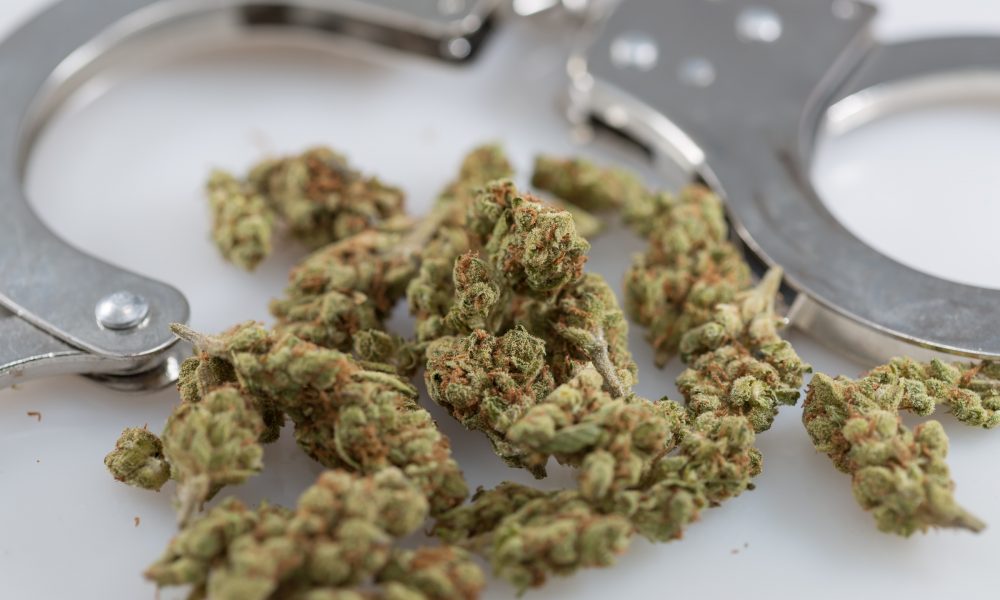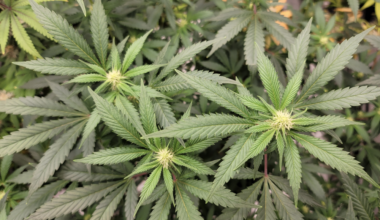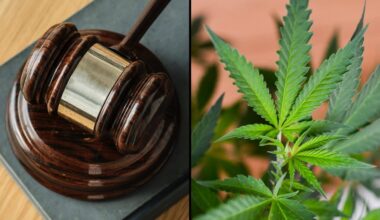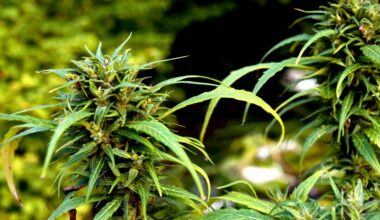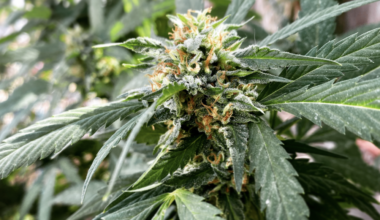The Justice Department and U.S. Department of Health and Human Services (HHS) say they will quickly act to follow President Joe Biden’s new directive to review marijuana’s federal scheduling status and process mass cannabis possession pardons.
Within an hour after the president made the surprise announcement, a DOJ spokesperson released a statement saying the department would abide by the cannabis directive in an expedited fashion.
“The Justice Department will expeditiously administer the President’s proclamation, which pardons individuals who engaged in simple possession of marijuana, restoring political, civil, and other rights to those convicted of that offense,” DOJ said. “In coming days, the Office of the Pardon Attorney will begin implementing a process to provide impacted individuals with certificates of pardon.”
Justice Department Statement on President’s Announcements Regarding Simple Possession of Marijuana https://t.co/VLnDpPpOQR
— Anthony Coley (@AnthonyColeyDOJ) October 6, 2022
“Also, in accordance with the President’s directive, Justice Department officials will work with our colleagues at the Department of Health and Human Services as they launch a scientific review of how marijuana is scheduled under federal law,” the agency said.
HHS Secretary Xavier Bacerra separately said he’s “looking forward to working with Attorney General Garland to answer [Biden’s] call to action to review how marijuana is scheduled under federal law.”
Looking forward to working with Attorney General Garland to answer @POTUS’ call to action to review how marijuana is scheduled under federal law. https://t.co/aXMcWCjJh2
— Secretary Xavier Becerra (@SecBecerra) October 6, 2022
Biden also called on governors to grant relief to people with low-level cannabis convictions at the state level, where the vast majority of Americans have been prosecuted over marijuana.
The scheduling review—which would be conducted by DOJ and HHS—could reshape federal marijuana policy depending on the final recommendation. Biden has faced numerous calls from advocates to use his executive authority to unilaterally initiate that process.
The agencies could ultimately recommend moving marijuana from the strictest classification of Schedule I under the Controlled Substances Act (CSA) to a lower schedule or no schedule at all.
Biden has said he supports rescheduling to Schedule II, but advocates have pushed for complete descheduling, which would effectively end prohibition.
The president said in a statement on Thursday that he has “directed the Attorney General to develop an administrative process for the issuance of certificates of pardon to eligible individuals.”
In June, Attorney General Merrick Garland said that the Justice Department was “examining” marijuana policy and would be addressing the issue “in the days ahead.”
Around that time, the White House drug czar also said that the Biden administration is “monitoring” states that have legalized marijuana to inform federal policy, recognizing the failures of the current prohibitionist approach.
Meanwhile, a bipartisan group of congressional lawmakers filed a bill in April that would direct the attorney general to create a commission charged with making recommendations on a regulatory system for marijuana that models what’s currently in place for alcohol.
While Garland has made clear that he doesn’t feel it’s appropriate to federally prosecute people who use marijuana, he hadn’t independently acted on calls from certain lawmakers to initiate the process to decriminalize marijuana.
The recently appointed U.S. pardon attorney also recently weighed in on the prospects of mass cannabis clemency, telling Marijuana Moment that her office handles cases independently, but it could be empowered to issue broader commutations or pardons if directed by the president.
—
Marijuana Moment is tracking more than 1,500 cannabis, psychedelics and drug policy bills in state legislatures and Congress this year. Patreon supporters pledging at least $25/month get access to our interactive maps, charts and hearing calendar so they don’t miss any developments.![]()
Learn more about our marijuana bill tracker and become a supporter on Patreon to get access.
—
The White House previously signaled that Biden would not be making any marijuana policy reform moves ahead of the election.
The press secretary said in August that she didn’t have “anything to announce today at this point” after being asked about a recent call to action by Pennsylvania Lt. Gov. John Fetterman (D), who is running for a U.S. Senate seat.
Biden and Fetterman did briefly discuss marijuana policy reform during a meeting near Pittsburgh on Labor Day, and a campaign spokesperson for the Senate candidate said the two talked about cannabis scheduling and executive authority to enact reform.
The president made his first public comments on marijuana issues since taking office after being pressed in July on whether he plans to follow through on his campaign pledge to release people who are incarcerated over non-violent federal cannabis offenses.
Biden reiterated at the time that he doesn’t believe people should be locked up over cannabis use, said that his administration is “working on” fulfilling that clemency promise and vaguely alluded to a crime bill that he suggested would address the issue.
Meanwhile, congressional lawmakers have continued to work legislatively to put an end to cannabis criminalization.
Senate Majority Leader Chuck Schumer (D-NY), Senate Finance Committee Chairman Ron Wyden (D-OR) and Booker filed a much-anticipated bill to federally legalize cannabis and promote social equity in July, and a Senate Judiciary subcommittee chaired by Booker subsequently held a hearing where members discussed the proposal.
But given the steep task of meeting the 60-vote threshold, the general expectation is that the comprehensive legislation will not advance this session, and conversations have pivoted toward putting together a package of more modest cannabis proposals such as protecting banks that work with marijuana businesses and expunging records of those residing in legal states.
For the time being, Senate Democrats are touting one piece of incremental marijuana reform legislation that passed the chamber back in April. The bipartisan bill is meant to streamline the process for scientists who want to access cannabis for research purposes.
That specific legislation hasn’t been enacted into law. But there are hopes that a slightly revised version that was introduced in July could reach the president’s desk in due time. It already cleared the House just days after its filing, and the Senate was prepared to hold an expedited vote on it last week, but it was delayed following the objection of a GOP senator.
If it makes it through the chamber and gets to Biden, who remains opposed to full federal marijuana legalization, it would mark the first piece of standalone marijuana reform legislation to ever become law.
Biden Announces Mass Marijuana Pardons And Calls For Cannabis Scheduling Review
Medical Disclaimer:
The information provided in these blog posts is intended for general informational and educational purposes only. It is not a substitute for professional medical advice, diagnosis, or treatment. Always seek the advice of your physician or other qualified healthcare provider with any questions you may have regarding a medical condition. The use of any information provided in these blog posts is solely at your own risk. The authors and the website do not recommend or endorse any specific products, treatments, or procedures mentioned. Reliance on any information in these blog posts is solely at your own discretion.
